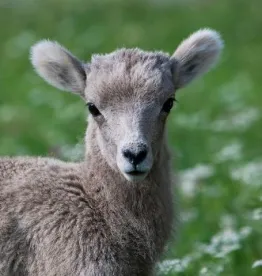Judge Cathy Seibel of the Southern District of New York recently dismissed a putative class action lawsuit challenging various environmental impact and animal welfare claims made by Allbirds in ads for its wool shoes. In doing so, the court determined that plaintiff’s allegations, which largely consisted of criticisms of the wool industry in general, did not plausibly allege that Allbirds’s descriptions of its own practices were false or misleading. Dwyer v. Allbirds, Inc., 7:21-cv-05238-CS (S.D.N.Y. Apr. 18, 2022).
Plaintiff’s complaint focused on two categories of claims: 1) claims about animal welfare, including claims that Allbirds’s sheep “Live The Good Life” and are treated “humanely,” and depictions of Allbirds’s sheep as “happy,” and living in “pastoral settings”; and 2) claims about Allbirds’s environmental impact, including “Sustainability Meets Style,” “Low Carbon Footprint,” “Environmentally Friendly,” “Made with Sustainable Wool,” “Reversing Climate Change,” and “Our Sustainable Practices.”
Animal Welfare Claims
Plaintiff alleged Allbirds’s animal welfare claims are misleading because “[e]conomic realities dictate – and require – that all sheep bred for wool are also slaughtered and sold for their meat,” and investigations of more than 100 large-scale wool operations have revealed inhumane conditions. According to plaintiff, Allbirds’s sheep cannot “live the good life” when it’s impossible to provide individual care to sheep raised in large numbers.
The court rejected plaintiff’s claims because plaintiff alleged nothing related to the wool used by Allbirds in particular. For example, the court noted that plaintiff failed to plausibly allege that Allbirds works with any of the 100 farms in the cited investigation. And unlike in Lee v. Canada Goose – a case we previously blogged about involving similar allegations – plaintiff failed to plausibly narrow Allbirds’s sourcing to regions or companies highly likely to use inhumane methods.
Plaintiff also criticized Allbirds’s certified wool supplier, but the court found that plaintiff’s allegations went to the supplier’s methodology for certifying farms and did not amount to allegations that inhumane practices occur at those farms.
Further, in a decision reminiscent of Ehlers v. Ben & Jerry’s, the court found that the depictions of “happy” sheep in “pastoral settings” were “obviously intended to be humorous” and would not be understood as making a factual claim on which a reasonable consumer would rely. The court called these depictions and the statement that “Our Sheep Live The Good Life” “classic puffery.”
Environmental Impact Claims
Plaintiff alleged Allbirds’s environmental impact claims are misleading because they are based on tools that only measure the carbon footprint of each product, without assessing wool production’s other environmental impacts. According to plaintiff, if Allbirds had calculated the carbon footprint from sheep farming overall, as opposed to the carbon footprint generated only by its products, its environmental impact figures would be significantly higher.
The court found that merely criticizing this methodology was not enough to state a claim. Importantly, the court noted that Allbirds’s advertising makes clear what is included in its carbon footprint calculation. Although plaintiff believed Allbirds should have used a different method to measure its carbon footprint – one that includes the entire lifecycle of wool production – the court found this does not plausibly allege that Allbirds’s environmental impact claims are materially misleading.
As discussed in our post on Lee v. Canada Goose, animal welfare and sustainability-related class actions are on the rise. This decision serves as a reminder that advertisers should be careful not to overstate the breadth of their carbon footprint analyses. When making carbon footprint claims, advertisers should be sure to disclose any limitations or assumptions that go into their claims (as Allbirds did here). Additionally, the court’s decision here may curtail the impact of Lee on future class actions of this kind. In fact, Judge Seibel explicitly questioned the reasoning of Lee, noting that she is “not sure [she] would have reached the same conclusion.” Following Dwyer, Lee may effectively be cabined to cases where a plaintiff is able to plausibly narrow an advertiser’s sourcing to companies that use inhumane or unsustainable practices. In other words, generalized allegations about industry practices may not be sufficient. Watch this space for further developments.




 />i
/>i
